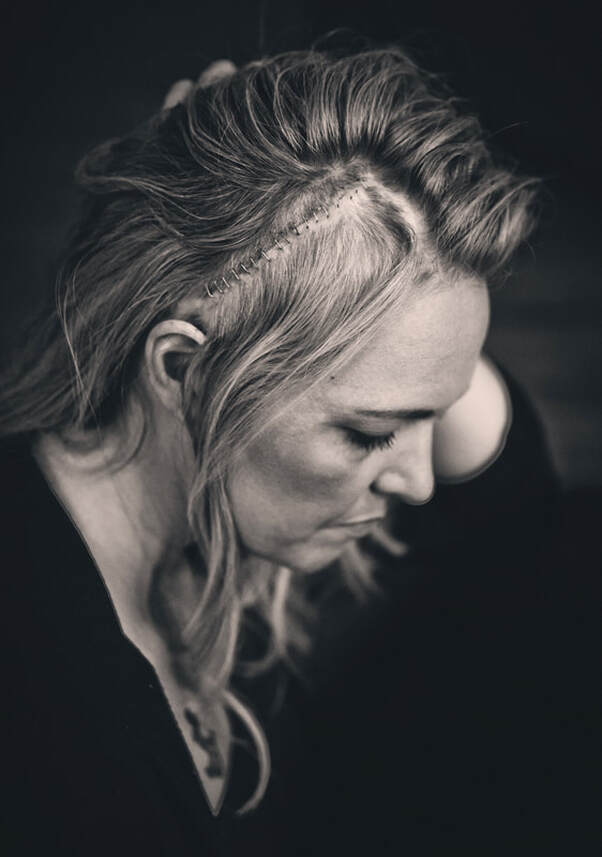 It’s a quiet Sunday afternoon. I’m listening to Jackson Browne and reading back through some journaling I’ve done in the past few months. When I’m sick and having surgeries I definitely find that I write less. Instead, I've made an effort to make short journal entries documenting the day to day events these past few months - as crazy things were unfolding in regards to my health. It feels kind of raw to read about all the little things I have already forgotten about… and I suppose that’s why journaling is so valuable. The days are filled with important moments, and even the painful moments are important. Suffering is meaningless, but the courage that we bring to our suffering gives it meaning. -Victor Frankl I got home from the hospital a little over a week ago. I posted on social media during the 16-day hospital stay and three surgeries, and then for several days once I was home and starting my recovery. During that time, I received so many amazing messages of encouragement and support and I know there were people praying for me all over the world. It was so humbling and comforting. Words can’t describe how it feels, but I am incredibly grateful. Thank you. When I started this blog, I made a commitment to share my story with the public – to support other patients and help educate those who were interested in knowing about my life with hydrocephalus. Sometimes I share a lot of detail about the medical aspect of my surgeries, and other times I feel it’s less important to give specifics. At the end of the day, every single patient with hydrocephalus can have a different experience every single time their shunt malfunctions. That’s just the nature of the condition. So instead of telling you each thing that happened during those 16 days, what I want to share is what I learned during this crazy time – in hopes that those things might help others. Here’s what I learned: A shunt infection doesn’t always look the way you expect it to. I’ve never had a shunt infection before, but just like so many hydrocephalus patients and parents out there, it has been my biggest fear. I’ve always heard the classic symptoms to be fever, headache, and vomiting… and that is usually the case. However, my initial symptoms manifested differently, and even though my medical team jumped right on them, I guess I just either ignored the possibility or was hopeful that it would turn out to be nothing to worry about. It wasn’t until the doctors confirmed in the hospital what they had suspected all along, that the brevity of the whole thing sunk in. The first symptom that showed up for me was a redness and welting directly over my shunt track on my abdomen. I immediately let my neurosurgeon know about it when it showed up, even though it was not accompanied by vomiting, fever, or headache. I actually was feeling pretty good at the time that this all started. I went through two different courses of oral antibiotics, and over those weeks, the severe headache did eventually develop. However, it wasn’t until I was in the hospital with the full-blown infection and my shunt externalized that I had a fever – and I never vomited. Going forward, I will understand that even symptoms that aren’t textbook can lead to a shunt infection. It isn’t going to change the way I live my life – it’s just a new reality. My hospital has an RV parking area with full hook ups for family members of patients. Shunt infections often result in multiple surgeries and a long hospital stay. I can’t say enough about the impact that these difficult and frankly inconvenient episodes cause to a family unit or support system of a patient. I am truly lucky that even as a 39-year-old adult patient, I have an incredible mom who accompanies me to every surgery and hospital stay, regardless of how long. I acknowledge that not everyone has that luxury. But during these hospital visits, my mom and I always try to figure out one or two little things that might make the whole thing just a little easier – even if they are small. It’s our tradition to go over these things on our 3-hour drive home from the hospital. I ask, “What were the game-changers, Mom?” As we made the beautiful drive through the sunny Cascade mountains this time, so happy to finally be heading home after almost a month, we came up with this one. St. Charles is a really nice hospital, and my mom usually stays in the room with me – as we only spend one night, maybe two, on the average shunt surgery trip. But on the 4th or 5th night of this stay, just as I was going in for another surgery and then being transferred into the ICU, our favorite nurse on the Neuro floor mentioned to my mom that the hospital has an area of the parking lot with full RV hookups, specifically for families of patients who travel more than 50 miles. My dad was coming over for my surgery, so he was able to bring my mom their RV, and that provided a much more comfortable way for my parents to stay close to me. I’m not saying this is what you have to do, but just that sometimes focusing on the little “game-changers” make all the difference in these otherwise terrible experiences. Some of our game-changers in the past have been as small as identifying my favorite milkshake on the patient room service menu or remembering noise canceling headphones for my mom so she can rest easier in the room at night. It’s important to acknowledge the little things and constantly learn, as you face forward. Do the things that are actually within your control… no matter how small. There were several days during this process where I was so sick that all I could concentrate on was getting through each hour. Within those hours, I had to choose to stay focused on the very few items that I could actually control. In those crazy hours, as I was fighting the fever and trying to stay sane after being in bed for so many days in a row – I could actively participate in my care by doing one thing… drinking water. By drinking water, I would need to get up to go pee – and by getting up to go pee, I was moving my body. That was what I could do… so I did it. Never underestimate the power of all the small things – it is by the small things that we make big strides. I am a “learner” – I’m aware that not everyone is naturally inclined to applying themselves to new patterns in times of trouble. But I think there are a few things that are universal – and apply to lots of different things. First off, patience and mental control go a long way… especially in the Intensive Care Unit. The bottom line is that processes in a hospital setting take time – they just don’t happen with the snap of your fingers or a frustrated complaint. And often, the nurses wish that they could serve you faster – they just have to go through the protocol. In these times, I try to remind myself that the guidelines they are following are for my own protection, and that there are lots of reasons to be thankful for the quality of care that I am receiving. Lastly, remember that there are opportunities to connect and support others in every situation. Each person working in the hospital is a human being with feelings, stresses, and a life worth respecting. In my darkest times during this infection and all the surgeries, I was met by incredible individuals who were not only willing to get down in the trenches and care for me, but also shared a tiny slice of their own life with me. There were conversations that might have seemed insignificant to some but changed me forever. I will never forget this journey, or the people who helped me get through it. They took a road that was filled with pain and suffering-- and paved it smooth with love and compassion. Thank you for every single prayer, message, and thought. Your love carried me through these days, and your faith held me strong. We’re here on this life path together… maybe for reasons we don’t understand. But we choose to stay – and that is the most beautiful thing you can imagine. Much love and continued health, Am
9 Comments
Your story is a beautiful one and a true one. Very inspiring I am 33 weeks pregnant and just had fetal surgery at 26 weeks and my baby will be born with spina bifida hydrocephalus and Chairi malformation. I’ve been on bed rest for three months definitely understand the small baby steps the positive things to focus on. I just want to say thank you for your story it was very inspiring
Reply
Amy
7/22/2019 06:36:32 pm
Brandy, thank you so much for your message. I know I don't know you, but I just want to tell you I am so proud of you for the incredible things you are doing for your baby... being on bed rest of any type is so hard, and you are amazing. Thank you.
Reply
Amy
10/3/2021 10:49:28 am
You're a strong, courageous and lovely person who will be an ideal Mom. Bed rest was mine, too...pregnant with twins trying to escape at 24 weeks. I spent the rest of my pregnancy in the hospital. We all know the hospital is the antithesis to comfort...loud, bright, etc. Just hold on...there will be some bad days, no doubt..yet, you sound positive and that is by far the best thing to be for your self and your sweet baby. I'm inspired by you & Brandy as well. This does indeed force you to find the best ways to cope. God bless you & your new miracle. Your words truly touched my heart. What a beautiful, brave and dedicated Mommy you already are! You'll all be in my thoughts and prayers. Blessings to you and yours.
Elizabeth
10/3/2021 10:58:12 am
Brandy, thank you. Bless your Mom, too. My Mom has endured my last 33 years by my side as well. That's a gift unto itself. You're a storm trooper, no doubt. Thanks for sharing the way your infection began. We rely so heavily on what the doctors say...real accounting from another, like you, is both more personally felt and appreciated far more. It's obvious you're a very strong & lovely person. Your capacity to share your trials & triumphs is profound...a gift! Blessings to you.
Reply
Duncan
7/16/2019 05:02:47 am
Stay Strong Hydro Warrior, So Glad you have so many people in your support group. I also have had a bunch of Brain Surgeries for Hydrocephalus. I can’t remember how many to be exact but it’s over 10 and under 20. I got my Hydrocephalus from falling while shoveling my driveway after it snowed, I live in Southern Alberta Canada, I was about 43 when the accident happened and it wasn’t until I was 48 that it was diagnosed and at that time it had turned into a emergency. So glad your support team looks after you. Both my parents were to old to understand the severity of my condition and both have since passed away. I do have a Great wife who everything has fallen on and 4 adult children but they have their own families and problems to look after. Send you Prayers and thank you for posting your journey, our roads with this condition will be rough and never ending its good to know others are on the same path.
Reply
Amy
7/22/2019 06:39:28 pm
Dear Duncan,
Reply
Michael Banks
7/17/2019 04:13:38 pm
<3
Reply
Melinda
10/13/2020 10:04:35 am
Hello! I found your page online a few months ago, following my own shunt infection/valve through the scalp experience, and have this sudden urge to contact you - or anyone else who shares our hydrocephalus experience - again. I am having difficulty adjusting to my "new" shunt (put in in July) - it's larger and more on the side of my head than the top, whee it was (in variouis versions) since 1976. I am weirdly and unpleasantly aware of it, it's bigger and FEELS much closer to the skin, like I could just scratch it with my fingernail and hit plastic. A little while ago, I bumped it while cleaning the cat litter box and for some reason, it just felt like the last straw(it's sore and again I feel WAY to conscious of it). Just wondering if anyone else has experienced this?
Reply
Elizabeth
10/3/2021 11:19:58 am
Duncan- thanks for sharing..You're right..supportive, caring people make all the difference. My shunt is placed basically in the center of the top of my head. Yes, unfortunately I've hit it or fallen many times. I can't honestly say what's "what" anymore. I felt your pain in speaking of your family. Chronic illness is awful no matter the cause. It's challenging to me to reassure my daughters & Mom that I'll be OK. I know that my multiple surgeries, etc have, at times, been more painful than necessary when I feel like a burden to many. They love & worry, too! I've often felt drenched in guilt for the fear and sadness my loved ones suffer. My shunt swells and contracts, but not one doctor has known why or say they've never "heard" of such happenings. It's a 360° range of emotions. Mine are now fear. Fear of falling and such and crushing my shunt. If you feel something new...don't hesitate, get to the ER. My shunt is also not well covered. It does no doubt feel strange to feel it so significantly through my skin. I have no words of wisdom other than be careful. I'm sorry you're dealing with so much. Blessings to you, Elizabeth
Reply
Leave a Reply. |
AuthorMy name is Amy but friends and family call me Am. I am a lover of dogs, good whiskey, and strength training. I'm a brain surgery survivor (x31), a fiddle player, a construction designer, and a boxing enthusiast. I have six real siblings, and five fake brothers. I love deeply, and consider my close friends to be family. Archives
February 2022
Categories
All
|

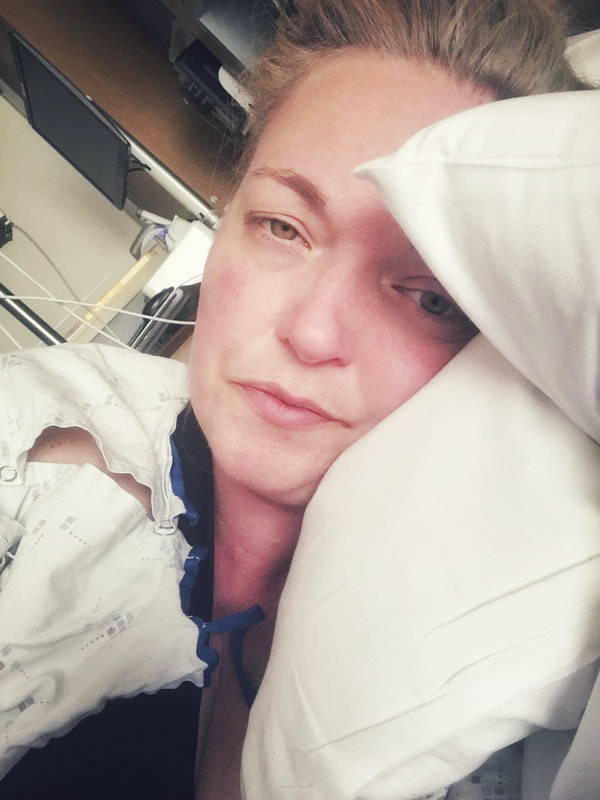
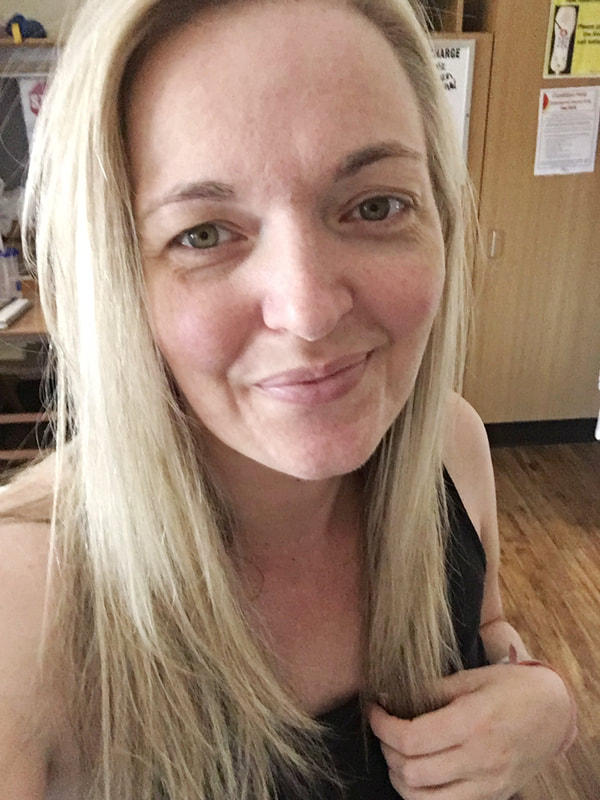
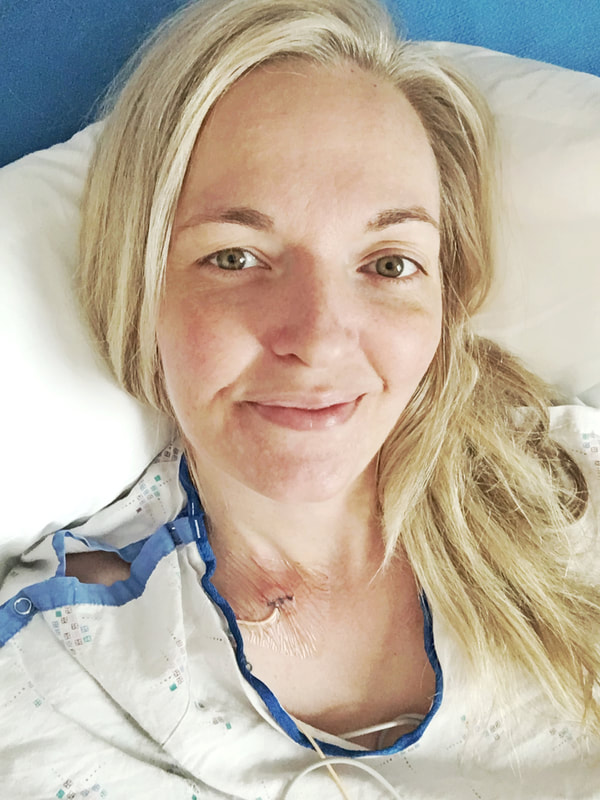
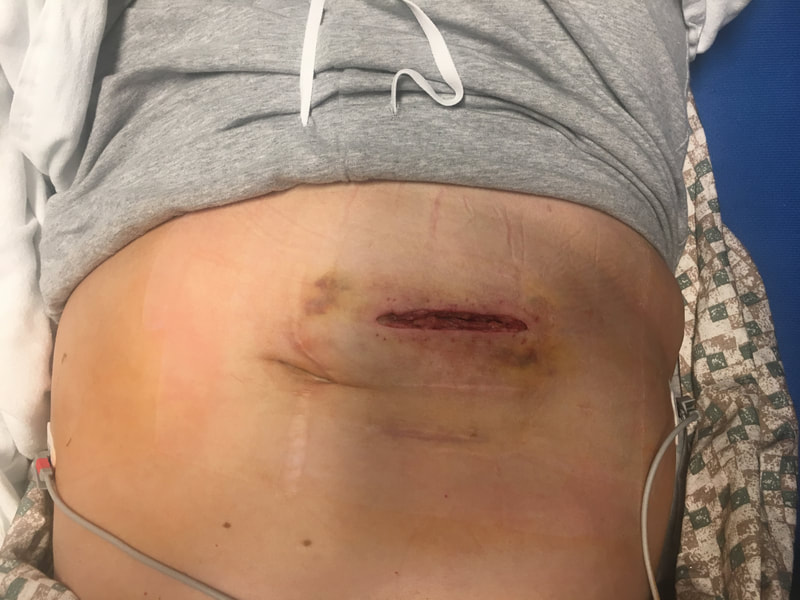
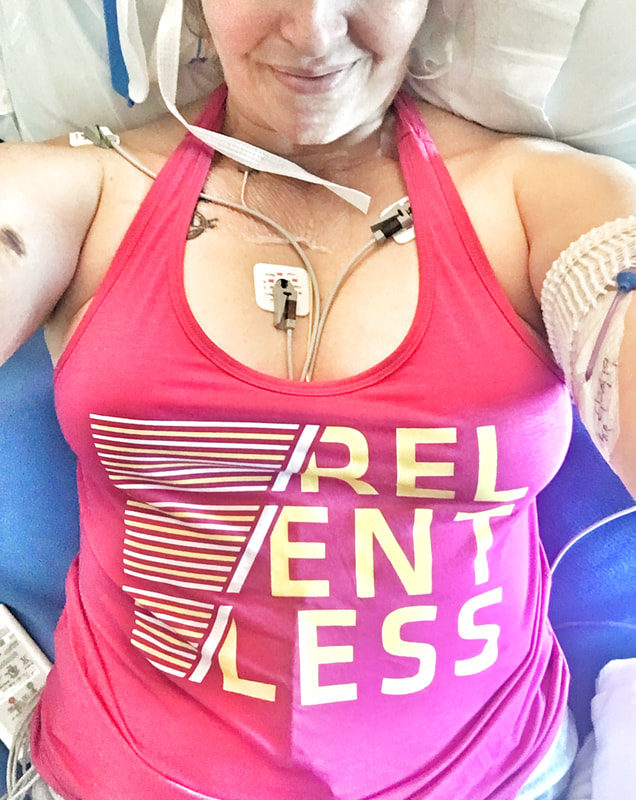
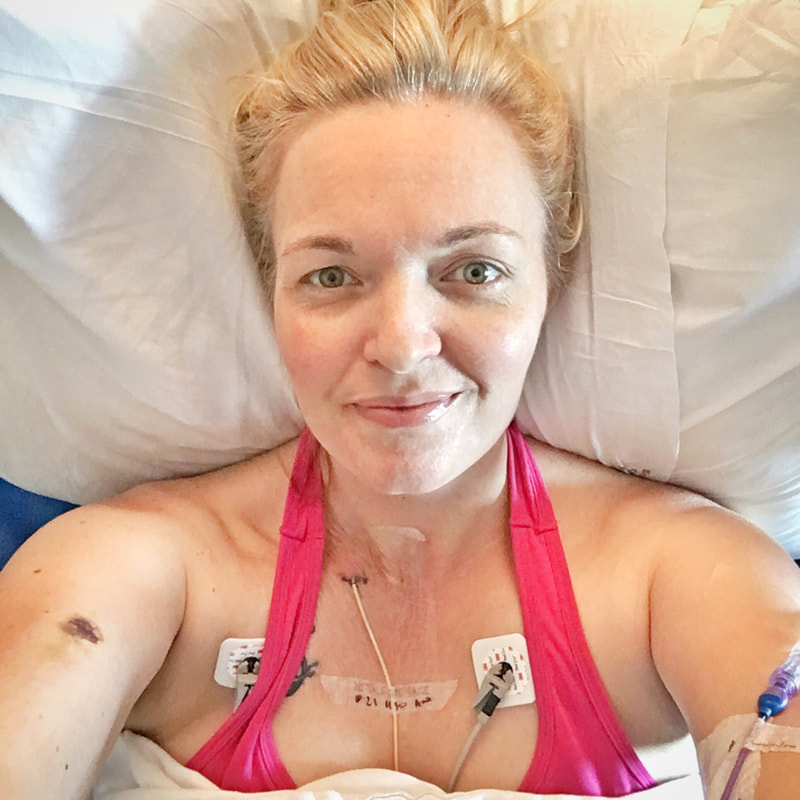
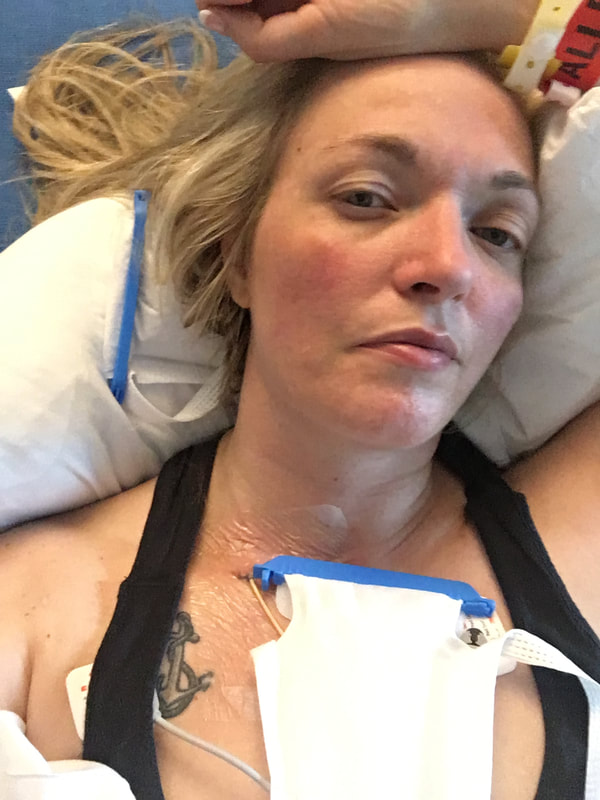
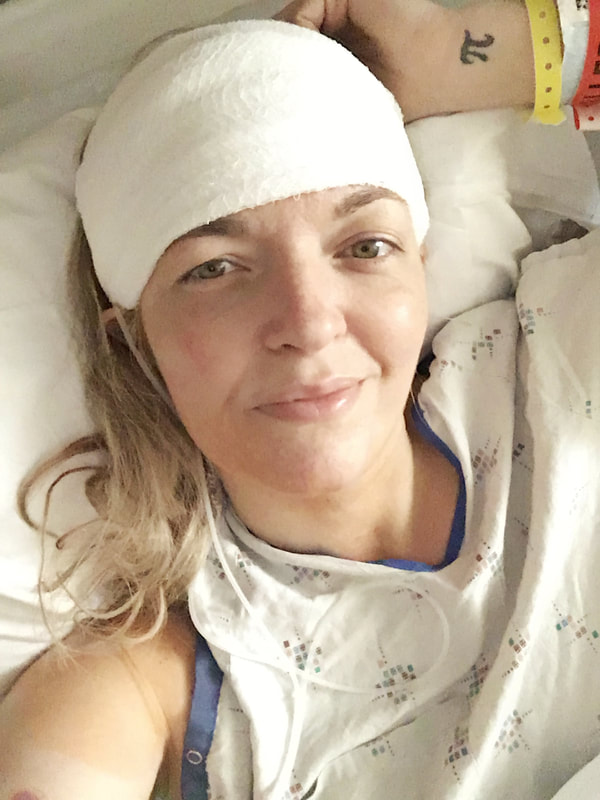
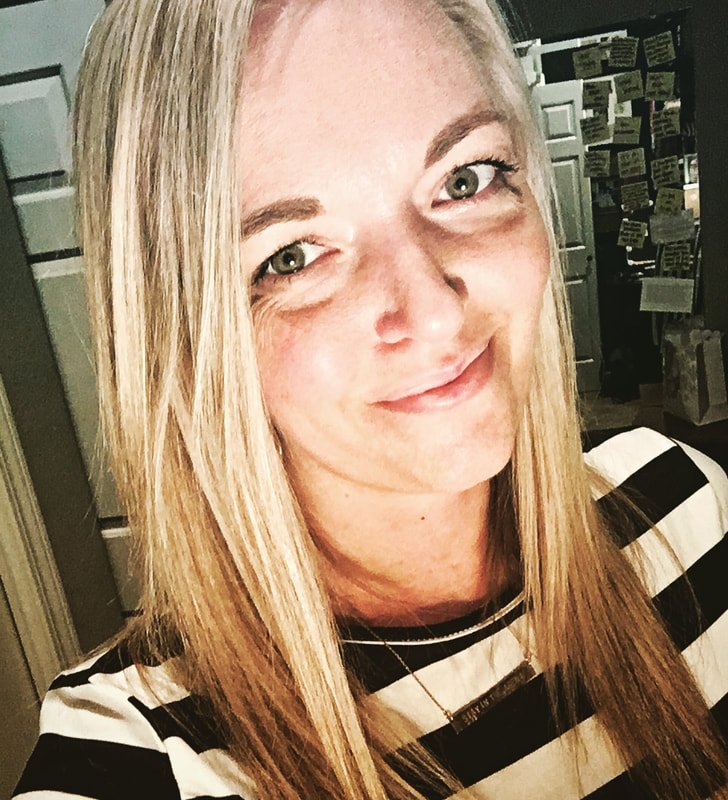
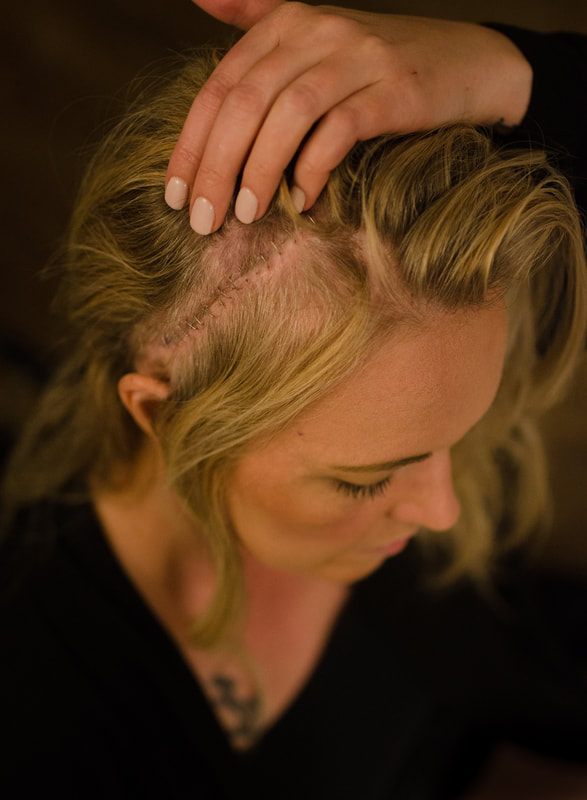
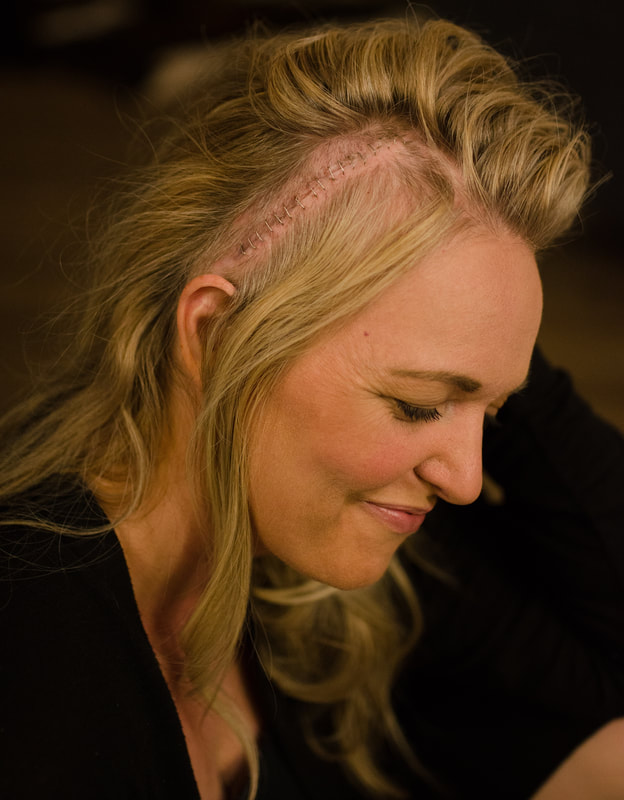
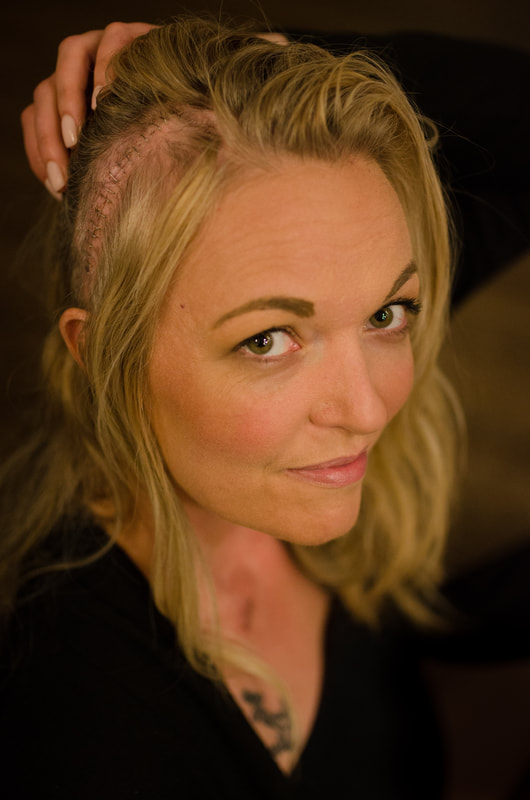
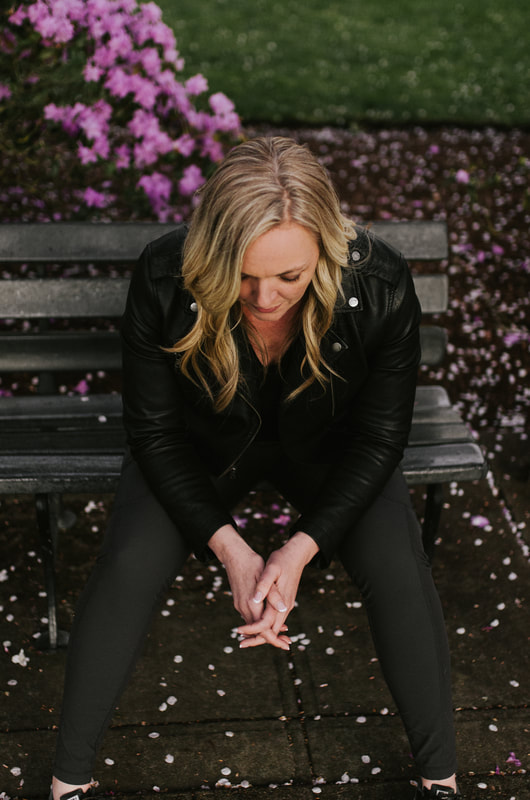
 RSS Feed
RSS Feed